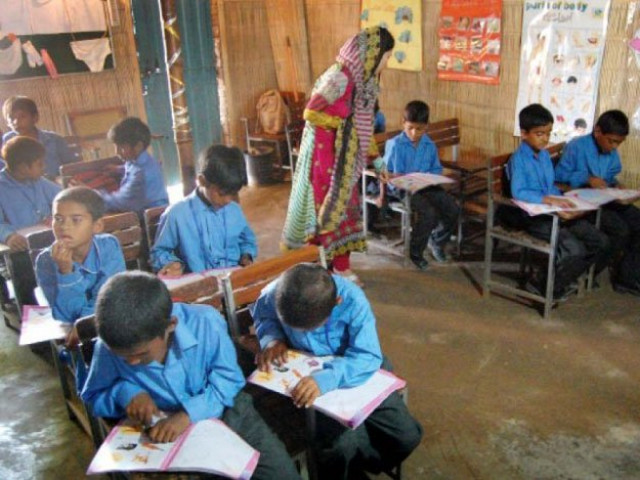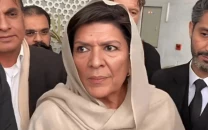Urdu language instruction causes grievances, says UNESCO report
Adoption of Urdu as the national language after independence had been a source of alienation, adds the report

PHOTO: MUHAMMAD JAVAID/EXPRESS
“In Pakistan, the continued use of Urdu as the language of instruction in government schools, even though it is spoken at home by less than 8% of the population, has also contributed to political tensions,” the report said.
Linguistic diversity: State urged to promote all Pakistani languages
The paper by UNESCO’s Global Education Monitoring Report (GEM Report) added that the adoption of Urdu as the national language after independence had been a source of alienation in a country that is home to six major linguistic groups and 58 smaller ones.
“The failure to recognise Bengali, spoken by the vast majority of the population in East Pakistan, was one of the major sources of conflict within the new country, leading to student riots in 1952. The riots gave birth to the Bengali Language Movement, a precursor to the movement that fought for the secession of East Pakistan and the creation of a new country, Bangladesh,” the paper stated.
Even in Bangladesh, where Bengali is the national language, non-Bengali speaking tribal groups in the Chittagong Hill Tracts have cited a perceived injustice over language as a factor that justifies their secession demands, according to the report.
Lack of preservation causing regional languages to die a slow death
The paper titled ‘If you don’t understand, how can you learn?’ released for International Mother Language Day (February 21)’ added that 40% of the global population does not have access to education in a language they understand.
The report argued that being taught in a language other than their own can negatively impact children’s learning, especially for those living in poverty.
Education policies should recognize the importance of mother tongue learning #MLD2016 https://t.co/zxQTeCOiD1 pic.twitter.com/99UOu8z7Ob
— Global Education Monitoring Report UNESCO (@GEMReport) February 21, 2016
“In multi-ethnic societies, including Turkey, Nepal, Pakistan, Bangladesh and Guatemala, the paper shows that imposing a dominant language through a school system - while sometimes a choice of necessity - has frequently been a source of grievance linked to wider issues of social and cultural inequality."



















COMMENTS
Comments are moderated and generally will be posted if they are on-topic and not abusive.
For more information, please see our Comments FAQ